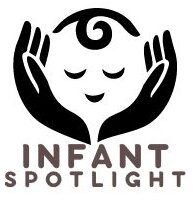Did you ever wonder when babies actually start responding when you call their name? It’s a question that has puzzled many parents and researchers alike. In this article, we will explore the fascinating topic of when infants typically start to respond to their name. From the first few months of their lives to key developmental milestones, we’ll uncover the timeline for this exciting moment in a child’s early communication journey. Get ready to dive into the world of baby name recognition!

Developmental Milestones in Infants
Importance of developmental milestones
Developmental milestones are crucial markers that indicate a child’s progress and growth in various domains, including physical, cognitive, social, and emotional development. These milestones provide parents and caregivers with a framework to monitor and track an infant’s development. By understanding and observing these milestones, parents can ensure their child is reaching important milestones within the expected timeframe.
Overview of key milestones
Infancy is a period of rapid growth and development. During this time, infants acquire new skills and abilities that serve as building blocks for future development. Key milestones in infancy include rolling over, sitting up, crawling, babbling, and eventually walking and talking. Each milestone is important and contributes to the overall progression of an infant’s development.
Social and communication milestones
Social and communication milestones in infants are vital for establishing connections with others and acquiring language skills. These milestones include making eye contact, smiling responsively, babbling, imitating actions and sounds, and demonstrating social engagement. These skills lay the foundation for developing relationships and language abilities later in life.
Understanding Infant Name Responsiveness
What is name responsiveness
Name responsiveness refers to an infant’s ability to recognize and respond to their own name when called. It is a fundamental aspect of social and communication development in infants. When a child recognizes their name being called, it signifies that they are aware of their existence as an individual and can differentiate themselves from their surroundings.
Significance of name responsiveness
Name responsiveness holds great significance in an infant’s development. It serves as an early indicator of cognitive and social development and helps establish a sense of self-identity. When an infant responds to their name, it demonstrates their growing awareness of their own name, their environment, and their connection with caregivers and loved ones.
Ability to recognize own name
The ability to recognize their own name is a significant milestone for infants. It typically emerges around 6 to 7 months of age, although some infants may respond to their name as early as 4 months. By recognizing their name, infants demonstrate their cognitive capabilities and their growing understanding of language and social cues.
Factors Affecting Name Responsiveness
Age and cognitive development
Age and cognitive development play a crucial role in an infant’s ability to respond to their name. As infants grow older, their cognitive abilities, such as memory and attention, improve, enabling them to recognize and respond to their name. Infants between 6 to 12 months of age often show the strongest response, as their cognitive development undergoes significant changes during this period.
Hearing and auditory processing
Hearing and auditory processing abilities impact an infant’s name responsiveness. Infants with hearing impairments or difficulties in auditory processing may have delayed or limited responses to their name. It is important for parents and caregivers to monitor an infant’s hearing abilities and seek professional evaluation if there are concerns regarding their ability to hear and respond to their name.
Social interaction and engagement
The level of social interaction and engagement an infant experiences also influences their name responsiveness. Infants who engage in frequent face-to-face interactions and receive responsive and interactive communication from caregivers are more likely to recognize and respond to their name. Social interaction helps infants develop a sense of connection and attachment, which contributes to their overall development and their understanding of their own name.
Typical Range for Name Responsiveness
Normal response timeline
The typical age range for infants to start responding to their name is between 6 to 12 months. However, it is important to note that every child develops at their own pace, and there may be variations in the timeline. Some infants may respond to their name as early as 4 months, while others may take longer to demonstrate name responsiveness. It is important for parents to be patient and provide consistent interactions and stimulation to encourage their child’s development.
Individual variations
Individual variations in name responsiveness should be expected. Each infant has their own unique developmental trajectory, influenced by a combination of genetic factors, environmental influences, and personal experiences. Some infants may demonstrate advanced name responsiveness, while others may require more time and support to reach this milestone. It is important for parents to focus on their child’s progress and reach out to healthcare professionals if they have concerns about their child’s development.
Early Name Responsiveness Indicators
Recognition of familiar voices
One early indicator of name responsiveness in infants is their recognition of familiar voices. Infants may display increased alertness and attentiveness when they hear the voices of their caregivers or loved ones. This early sign suggests that the infant is beginning to associate specific voices with comfort and familiarity, setting the stage for recognizing and responding to their own name.
Preference for human speech
Infants also show a natural preference for human speech over other sounds. They have an innate ability to distinguish human voices and pay attention to speech patterns and rhythms. This preference for human speech serves as an important precursor to name responsiveness, as infants become increasingly attuned to the sounds and tones of language.
Eye-tracking and visual attention
Infants who demonstrate strong eye-tracking abilities and sustained visual attention may also display early signs of name responsiveness. When an infant turns their head or directs their gaze towards the source of their name being called, it reflects their growing ability to connect auditory and visual stimuli. Eye-tracking and visual attention are essential skills that support the development of name recognition and responsiveness.
Infant Name Response Techniques
Repetition and reinforcement
Repetition and reinforcement are effective techniques for encouraging infant name responsiveness. Parents and caregivers can repeatedly say the infant’s name during everyday interactions and activities. This constant repetition helps reinforce the association between the name and the child’s identity. Consistent use of the child’s name in a positive and engaging manner enhances their recognition and response.
Use of positive reinforcement
Positive reinforcement is a powerful tool in promoting name responsiveness in infants. When an infant responds to their name, it is important for parents and caregivers to provide verbal praise, smiles, and affectionate gestures. This positive feedback reinforces the infant’s understanding that they have successfully recognized their name, encouraging further responsiveness.
Interactive and engaging activities
Engaging in interactive activities with an infant can boost name responsiveness. Playing games that involve calling the infant’s name or using interactive toys that produce sounds when their name is called can capture their attention and motivate them to respond. Incorporating their name into songs and rhymes can also be a fun and engaging way to encourage name recognition and response.
Importance of Name Responsiveness for Development
Building social bonds
Name responsiveness plays a vital role in building social bonds between infants and their caregivers. When an infant responds to their name, it fosters a sense of recognition and connection with those around them. This early social interaction helps strengthen the bond between the infant and their parents or caregivers, laying the foundation for healthy relationships and social development.
Enhancing language acquisition
Name responsiveness is closely tied to language development in infants. As infants recognize and respond to their name, their awareness of language and the sounds of speech expands. This increased awareness of language stimuli facilitates their language acquisition process, supporting the development of vocabulary, comprehension, and eventually, verbal communication skills.
Impact on overall cognitive development
Name responsiveness has broader implications for an infant’s overall cognitive development. The ability to recognize and respond to their name reflects cognitive milestones such as attention, memory, and understanding of language. These cognitive skills are essential for further cognitive development, including problem-solving, critical thinking, and learning.
Developmental Red Flags
Delayed name responsiveness
When an infant shows a significant delay in name responsiveness beyond the expected age range, it may indicate a developmental red flag. If an infant does not respond to their name by 12 months of age, or if there is a regression in their responsiveness, it is advisable to seek professional evaluation. Early identification of developmental delays can enable timely interventions and support for the child’s development.
Possible underlying causes
Delayed name responsiveness can be influenced by various factors. It could be related to hearing impairments, language delays, or cognitive challenges. Other factors such as environmental influences, lack of social interaction, or inconsistent use of the child’s name by caregivers may also contribute to delayed name responsiveness. Identifying the underlying causes can guide appropriate interventions and support for the child.
Seeking professional evaluation
If there are concerns regarding an infant’s name responsiveness, it is recommended to seek professional evaluation from healthcare providers, pediatricians, or early intervention specialists. These professionals can conduct assessments to determine the underlying factors contributing to delayed name responsiveness and provide guidance on appropriate strategies and interventions to support the child’s developmental needs.
Encouraging Healthy Development
Creating a stimulating environment
Creating a stimulating environment is essential for promoting healthy development in infants. Providing age-appropriate toys, books, and activities can enhance their cognitive, social, and language skills. A safe and nurturing environment that encourages exploration and engages the child’s senses fosters overall development, including name responsiveness.
Promoting interactive experiences
Promoting interactive experiences helps infants develop their social and communication skills, including name responsiveness. Engaging in face-to-face interactions, talking, singing, and playing games that involve calling the infant’s name can enhance their ability to recognize and respond. Regular interactive experiences with caregivers and other individuals offer valuable opportunities for the infant to practice and refine their name responsiveness.
Ensuring regular developmental check-ups
Regular developmental check-ups are important to monitor an infant’s growth, development, and milestones. Healthcare providers can assess an infant’s name responsiveness and address any concerns or questions parents may have. These check-ups enable early identification of any developmental delays or difficulties, ensuring timely intervention and support.
Conclusion
Developmental milestones, including name responsiveness, hold great significance in an infant’s growth and development. The ability to recognize and respond to their own name is an important milestone that impacts social, communication, and cognitive development. Understanding the factors influencing name responsiveness, recognizing early indicators, and employing effective techniques can support healthy development in infants. Parents and caregivers play a crucial role in promoting name responsiveness by creating a stimulating environment, encouraging interactive experiences, and seeking professional evaluation when necessary. By prioritizing and nurturing their child’s development, parents can help them reach their full potential and navigate their developmental milestones with confidence.
